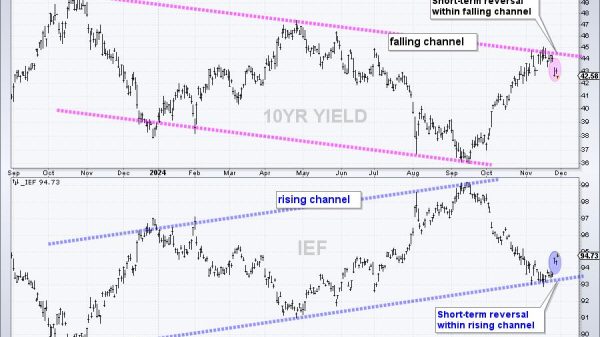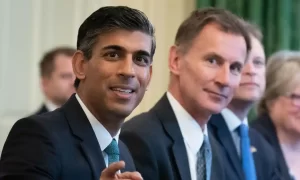The government is considering axing inheritance tax in three months’ time in a pre-election giveaway to boost Rishi Sunak’s chances of victory.
The move is one of a handful of major tax cuts that have been discussed by senior figures in Number 10.
The Prime Minister has ordered a “gear change” on tax, having made bringing down inflation, rather than reducing the tax burden, the priority early in his premiership.
Other cuts being considered include increasing the threshold at which people start paying the 40 per cent rate of income tax, and reducing the basic 20 per cent rate.
But scrapping inheritance tax is the least likely of the three moves to be matched by Labour – potentially creating the tax “dividing line” craved by Tory election strategists.
Conservative MPs who have led calls for tax cuts welcomed the news, with one describing inheritance tax as “immoral” because it often applies to earnings that were previously taxed.
The Tories are also looking to win over younger voters by promising to slash the up-front cost of a home for first-time buyers.
Michael Gove, the Housing Secretary, told The Times newspaper that the Government is planning to offer government support for much-longer first term mortgages to reduce the cost of a deposit.
The news that major tax reductions are being planned for March could help calm Tory jitters. It comes after Conservative MPs clashed over the Rwanda deportation Bill earlier this month.
Mr Sunak faces a challenge in the new year as he attempts to keep Tory MPs united and re-energise Conservative voters disillusioned with the Government.
An inheritance tax cut was seriously considered for the Autumn Statement in November, but tax changes more directly focused on boosting economic growth were announced instead.
The Tories are going into election year around 20 percentage points behind Labour in the polls – a margin that, if replicated on voting day, would hand Sir Keir Starmer a vast Commons majority.
The Labour leader has told his shadow cabinet to be ready for an early election in the spring, with his team treating indications that an autumn vote is most likely with suspicion.
Tory election strategists see regaining the Conservatives’ reputation for tax-cutting, after years of overseeing a soaring tax burden, as a key plank of their campaign.
The overall tax burden is heading to its highest level for around 70 years, with a freeze on many tax threshold levels used to recover money spent in the Covid pandemic.
But in November’s Autumn Statement, Mr Sunak and Jeremy Hunt, the Chancellor, signalled a change in approach, delivering the biggest single package of tax cuts since the 1980s.
That focused on measures to boost economic growth, with National Insurance for employees cut and businesses given an investment tax cut via full expensing.
The Budget expected in March – likely to be the final fiscal statement before the next election – will be geared towards winning over voters, according to Tory insiders involved in the package.
While just four per cent of households pay inheritance tax each year, according to HMRC figures from 2021, Tory pollsters have picked up that many more families view it with disdain.
Inheritance tax is charged on the part of someone’s estate above the tax-free threshold, which is £325,000. That can rise to £500,000 if a home is given to a child or grandchild.
The current inheritance tax rate is 40 per cent. Abolishing the tax entirely would create a hole in the Treasury finances of around £8 billion a year.
Were the move to happen, it is unclear exactly when it would kick in. Tax cuts announced in the Budget often take effect that April – the start of each financial year.
The Treasury, which will quicken preparations for the Budget when returning in the new year, could be limited in its manoeuvrability by the lack of fiscal headroom.
Mr Hunt was left with just £13 billion spare while still hitting his debt reduction targets after the Autumn Statement. That is half the average fiscal headroom enjoyed since 2010.
It means an unexpected deterioration in the economic forecasts – for example, downgraded growth after this year’s rising interest rates – could limit space for the tax cuts desired.
But recent forecasts predicting that interest rates paid on government debt will be lower than expected suggests Mr Hunt could have billions of pounds more to play with than had been assumed last month.
The news that inheritance and income tax cuts are being considered for the Budget was hailed by some Conservative MPs.
Ranil Jayawardena, a former Cabinet minister and the chairman of the Conservative Growth Group, said: “Time is running out, and the Government needs to be bold. It’s time to axe the death tax.
“It’s a double tax, because it’s a tax on money which has already been taxed, and it piles on the pressure at the most sad and stressful of times. It is the least popular of taxes with people of all incomes because it is anti-aspirational, anti-family and is simply unfair. It needs to go.
“Of course, the Government should seek to reform income tax to make it family-friendly too. Married couples and civil partners should have fully transferable income tax allowances, which would particularly help working-age parents with children when a family’s finances are tested the most. Let’s reward people who are trying to do the right thing.”
David Jones, a former Wales secretary, said: “Both income tax and inheritance tax need to be cut. Inheritance tax, in particular, should be abolished. It is an immoral tax on assets that have mostly been amassed out of taxed income. In my experience, it is arguably the most hated tax of all.”
In the autumn, some Tory MPs pushed for cuts to income tax rather than inheritance tax, arguing that benefiting workers rather than those with personal wealth was wiser.
The next general election must be held by January 2025 at the latest, but a date next autumn is widely expected to be picked.
Read more:
Sunak set to end inheritance tax in spring ahead of election
























